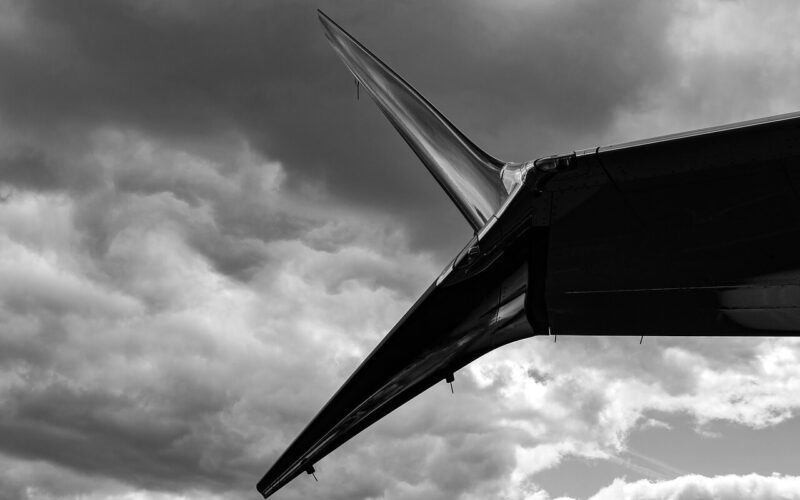Canada’s flagship carrier Air Canada (ADH2) , much like Southwest Airlines (LUV) in the U.S., has given up hopes to resume its Boeing 737 MAX flights in 2019. With the release of second quarter 2019 results, the airline announced it will remove MAX flights from its schedule until “at least” early January, 2020. Despite posting better-than-expected results, the company now expects the continued grounding of the planes to weigh down its performance in the third quarter.
Together with its latest financial results, posted on July 30, 2019, Air Canada (ADH2) revealed it is scrapping 737 MAX flights from its schedule until January 8, 2020, for “planning purposes”, citing uncertainty regarding the model’s return to service date.
“In our planning, we will be removing the Boeing 737 MAX from our schedule until at least January 8th, 2020…” said Calin Rovinescu, President and CEO of Air Canada (ADH2) in an official news release. “At present, we have no visibility on reliable timing for the return to service of the Boeing 737 MAX as we await regulatory approvals.”
If the aircraft were returned to service earlier than expected, said Rovinescu, the company “would look for opportunities to have some enter the fleet for either replacement flying or as back-ups”, something that is currently being done with other aircraft in Air Canada’s (ADH2) fleet to cover flights served on the MAX.
The decision to cut even more MAX flights until early next year comes on the heels of Southwest’s move to extend flight schedule reductions for the model through January 5, 2019, as stated in the budget carrier’s second quarter 2019 report on July 25, 2019.
Top U.S. carriers, such as American Airlines (A1G) (AAL) and United, have already pushed back MAX flights several times, the latest extension being early November 2019. Air Canada (ADH2) had also previously said it was removing the model from its schedule until the beginning of August.
At the time of the grounding of the model in March of this year, Canada’s largest carrier had 24 737 MAX 8 aircraft in its operating fleet. The company says it now expects deliveries of the remaining 12 planes on order, previously scheduled for July 2019, to be delivered next year.
Impact of 737 MAX grounding on Air Canada
In the second quarter (ending June 30, 2019) Air Canada (ADH2) reported around $183 million (C$240 million) net profit, compared to $98 million (C$129 million) same period in 2018, on revenues of $3.6 billion (C$4.757 billion) and unrestricted liquidity amounting to about $5.3 billion (C$7 billion).
“I am delighted to report an excellent second quarter, including record operating revenues of $4.757 billion and record liquidity of nearly $7 billion… These are impressive results with revenue growth in each market segment and system passenger revenues up 10.7 per cent on capacity growth of 2.3 per cent. We also managed costs well, especially with the challenges of sourcing replacement flying for some of the Boeing 737 MAX aircraft that are out of service”, commented Rovinescu.
Despite posting an encouraging second quarter profit, Air Canada (ADH2) says it expects the continued grounding of MAX planes to weigh down the company’s performance in the third quarter 2019, resulting in reduced capacity and curbing earnings growth.
“The impact of the Boeing 737 MAX grounding will be felt more acutely in our very busy summer period,” the Air Canada’s (ADH2) chief noted. “Third quarter projected capacity is expected to decline approximately two per cent compared to the third quarter of 2018, as opposed to an originally planned capacity increase of approximately three per cent.”
The case of WestJet Airlines
Another Canadian airline, WestJet, announced on July 29, 2019, it is also extending its 737 MAX flight suspensions, although not as far into the future as Air Canada (ADH2) – until November 4, 2019, local news media report.
As of June 30, 2019, the low-cost carrier had 13 737 MAX 8 planes in its operational fleet and was expecting to take delivery of another two of the variant in the second half of this year, WestJet’s financial report for second quarter 2019 shows. All in all, the airline was scheduled to take delivery of 23 MAX jets by 2027, bringing the total amount of the model in its fleet to 36 planes.
According to a report in the Calgary Herald on July 29, 2019, WestJet is now seeking compensation from Boeing for lost revenue due to the grounding of the MAX. “We have been having multiple and significant conversations along those lines,” Sims was quoted as saying by the news daily. “Clearly we are one of two Boeing-exclusive jet fleets in North America and we expect that to be reflected in the conversation we have with Boeing.”

